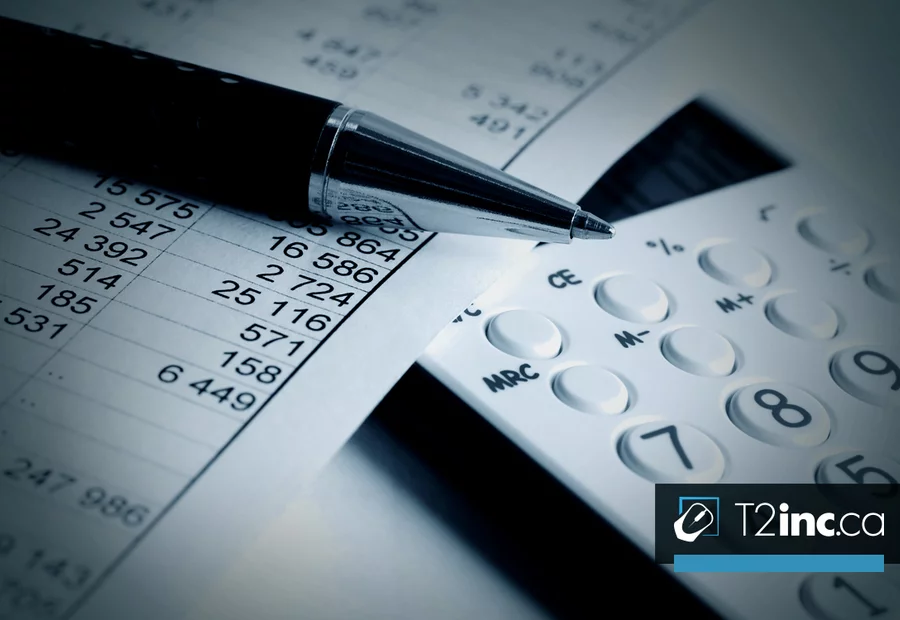What do I need to know about the tax benefits of a company car in Canada?

For a business owner, the personal use of a company car can have tax implications that require a clear and concise understanding of the applicable rules.Understanding how these benefits are calculated, how they affect tax liabilities, or how to optimize them can result in significant savings and avoid complications with the Canada Revenue Agency (CRA).
Our corporate tax accountants will explain everything you need to know about the taxable benefits associated with a company car.
Understanding how the taxable benefit of a company car works
For a business owner, a company car offers great flexibility in day-to-day management.
However, it also comes with a significant tax liability. When a vehicle is used for both business and personal purposes, determining the taxable benefit associated with that personal use is critical to complying with CRA standards.
Principle of the taxable benefit
The taxable benefit of a company car is considered to be a benefit received in addition to salary. In other words, the taxable benefit is the monetary value of the personal use of the car, which is considered as additional income.
This benefit is assessed on the basis of the availability of the vehicle for non-business purposes and the actual use of the vehicle for these purposes.
How to calculate the taxable benefit of a company vehicle?
The calculation of the taxable benefit can be approached from two main angles:
Right-of-use benefit: This relates to the availability of the vehicle for personal use. The CRA requires that a fixed amount be added to the user's income for each day of availability, generally calculated as 2% of the vehicle's purchase cost per month.
Benefit for operating expenses: These are costs associated with personal use, such as fuel and maintenance. Business owners often use a flat-rate method set by the CRA to assess these costs, based on a per-kilometre rate for personal mileage.
The Importance of Documentation
Maintaining detailed documentation of vehicle usage is critical to ensuring tax compliance. An accurate logbook that records both business and personal mileage not only justifies the calculated taxable benefit, but also helps defend these figures in the event of an audit.
This diligence is essential, as irregularities can result in significant penalties. Consultation with a tax advisor is recommended to ensure that all tax obligations are met and risks avoided.
Is the taxation different if I'm both a shareholder and an employee of the company?
For business owners who are also shareholders and employees, managing the taxable benefits of a company car is complex. Distinguishing between personal and business use of the vehicle and their tax implications requires careful attention to maximize benefits while complying with CRA tax standards.
Nature of the Taxable Benefit
When an employee shareholder uses a company car for personal reasons, the use is taxable. However, the benefit may be treated as either employment income or a disguised dividend, depending on the extent of the personal use.
Employment Income: If the vehicle is used primarily for business activities, the benefit is treated as employment income, with applicable source deductions such as employment insurance premiums and Canada Pension Plan contributions.
Disguised dividend: If the personal use of the vehicle is significant, the CRA may interpret the benefit as a disguised dividend. This can have significant tax implications, particularly regarding how to treat distributions and potential withholding.
Does the purchase or lease of a company car affect the shareholder's taxable benefit?
For a business owner considering the use of a company car for personal and business purposes, the choice between purchasing or leasing the vehicle can have a significant impact on the taxable benefit.
Understanding these differences is critical to optimizing business tax strategies while complying with Canada Revenue Agency (CRA) guidelines.
Effects of Purchasing a Company Car
When a company buys a vehicle:
Depreciation: The vehicle is considered a business asset, which allows its value to be depreciated over a number of years. Depreciation reduces the corporation's taxable income, but does not directly affect the taxable benefit attributed to the shareholder's personal use of the vehicle.
Calculation of the taxable benefit: For personal use, the taxable benefit is based on the initial value of the vehicle, calculated at 2% of the purchase cost per month. This amount is added to the shareholder's income for each month that the vehicle is at his disposal, regardless of book depreciation.
Effects of leasing a company car
When a company leases a vehicle:
Lease Payments: Lease payments are fully deductible business expenses in the tax year in which they are incurred. This deduction can provide more immediate tax relief than the depreciation of a purchased vehicle.
Calculating the Taxable Benefit: The taxable benefit for personal use is calculated based on the actual monthly lease payments. This method of calculating the taxable benefit is often simpler and more transparent than a valuation based on the depreciation of a purchased vehicle.
What are the risks of not properly declaring a company car?
Failure to properly declare the use of a company car can result in a number of risks and consequences, particularly for business owners and shareholders.
Penalties and interest
The Canada Revenue Agency (CRA) may impose penalties for failure to report or misreport taxable benefits. Penalties may include fines and interest on unpaid amounts. Interest is calculated from the date the tax was due until it is actually paid, increasing the financial cost to the individual or corporation.
Tax audits and reviews
A misstatement may result in an audit or further tax examination by the CRA. During an audit, the officer will examine the company's financial records and returns in detail. This may result in a reassessment of taxes due on other aspects of the company's finances, not just those related to vehicle use.
Corporate reputation
Tax compliance is an important aspect of corporate governance. Tax violations, even those involving seemingly minor matters such as the use of a company car, can damage a company's reputation. This can affect the confidence of investors, business partners and customers.
Legal complications
Tax compliance issues can sometimes lead to legal complications, including disputes or lawsuits. These situations are not only costly, but can divert significant resources from the company's core business.
Personal Financial Risk for Management
For business owners and shareholders, the financial consequences of non-compliance can be personal. For example, failure to properly report personal use of a company vehicle could result in a personal tax assessment for additional taxes, penalties and interest.
With T2inc.ca, you can understand the benefits and tax consequences of a company car
The use of a company car in Canada involves a number of important tax considerations. Whether you're a shareholder, employee-shareholder or even self-employed, understanding these implications will help you optimize your tax and business decisions. It will also help you understand the financial risks associated with non-compliant information on your personal income tax return.
For assistance in filing your corporate tax returns or for expert advice on corporate taxation in Canada, contact our specialists. Call us at +1 800 836 0585 or fill out our contact form.
- Understanding how the taxable benefit of a company car works
- Is the taxation different if I'm both a shareholder and an employee of the company?
- Does the purchase or lease of a company car affect the shareholder's taxable benefit?
- What are the risks of not properly declaring a company car?
- With T2inc.ca, you can understand the benefits and tax consequences of a company car
Contact our experts
Have a question? Need help? Fill out our online form to get help from our experts.
Contact usNeed more help?
Contact us by filling out our form
Are you interested in our services, but would like more information before taking the plunge? Contact us today and one of our tax accountants will be in touch to help you.
At T2inc.ca, we're committed to helping business owners manage their company's tax affairs so they can grow their business.




